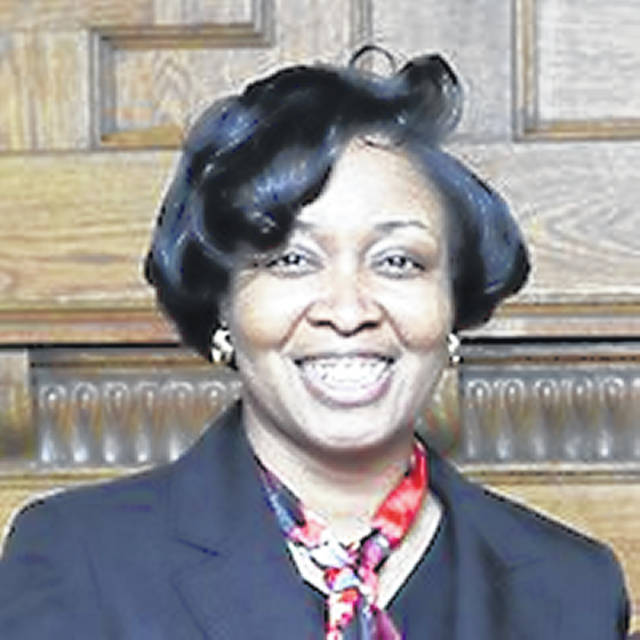The recently released sci-fi action movie “The Creator” has drawn mixed reviews from critics, although 76% of fans gave it a thumbs-up on Rotten Tomatoes. Since its previews, I had this film on my schedule to view due to following how artificial intelligence has been depicted in pop culture and reading current AI headlines regarding robotic advancement and mounting ethical concerns. Recent news stories have explored the projections that AI would require the same amount of energy to run as an entire nation and have warned how AI generated voices are quickly spreading untruths and bogus news on TikTok.
Scientists are hoping that AI can produce faster timetables for discoveries, and in the medical field doctors have been using AI for note taking. As AI becomes more imbedded in various industries that already impact our daily lives, it’s no surprise that many are worried about ethical challenges such as mass misinformation, replacement of jobs, and autonomous weapons, which are listed in detail on a May 30 blog from Capitol Technology University. “The Creator” delves into the fear of AI-powered weapons being misused by humans and insinuates that people eventually come to trust the self-direction of sentient AI-armed simulants for their protection.
The plot of the film is set in the future year of 2065. It is apparent that the film’s director Gareth Edwards aims to evoke a compelling pathos in the audience’s emotions by making AI the protagonist in the form of a young girl created as an Alpha-O weapon. She would later be called Alphie by the U.S. ex-special forces agent Joshua (John David Washington), who is assigned to destroy her since she has the power to wipe mankind from the Earth. The storyline develops around the U.S. banning artificial intelligence and waging a global war with AI due to a nuclear bomb that strikes Los Angeles. The military spends a decade building a massive battleship aircraft called the USS Nomad with a mission to terminate the AI that remains in a territory designated as New Asia.
Alphie is tenderly portrayed by newcomer Madeleine Yuna Voyles, who brings her AI-simulated likeness to life with the kind innocence of a child. However, “The Creator’s” premise that humans had established strong, emotional ties with AI and entrusted their public safety to AI simulants in the form of police and village fighters is just not believable. Edwards makes a bold attempt to push this narrative with the oppression of the indigenous people of color in this New Asia territory. The USS Nomad bombs this region with powerful imperialistic force to take out AI, but the villagers have familial bonds with the sentient AI that live among them, with many of the robots having human likenesses. The plot does not provide an explanation for how AI became integrated in this poor, agrarian society, which is problematic since owning a robot isn’t cheap. Last year, Elon Musk introduced a humanoid robot named Optimus that was priced just under $20,000. Imagine what a humanoid would cost in 2065. There’s no way villagers like the ones depicted in New Asia would be able to afford any AI-simulated machines.
The other glaring drawback is that the AI simulants are shown as expressing human emotions ranging from anger to grief, which is impossible for a robot. I know that robots are being programmed to detect facial recognition and human responses, but they cannot sense what we authentically feel. “The Creator” actually makes a brief reference to Genesis 2:23 where Adam describes Eve as “(being) taken out of Man,” but in terms of how we truly are sentient beings created by God, I was thinking of Genesis 2:7 while watching the film, where Scripture says that God breathed “the breath of life” into Adam’s nostrils and he became “a living soul.” Soul in the Hebrew translation in this verse is “nephesh,” which is a “breathing creature.” Robots and AI are no doubt brilliantly designed, but they will never be “breathing creatures.”
I found it interesting throughout “The Creator” that when Alphie begins to use her powers to end the AI war, she folds her hands as if she is praying. This appearance of praying could symbolically represent our need for a power greater than ourselves, but in our present society, many have not given God, the divine Creator, a chance. In our world of growing technology and AI, many will put more trust in machines, and the potential dangers of being left “to our own devices” are evident.
Dr. Jessica A. Johnson is a lecturer in the English department at The Ohio State University-Lima. Reach her at [email protected] or on Twitter @JjSmojc. Her opinion does not necessarily represent the views of The Lima News or its owner, AIM Media.







